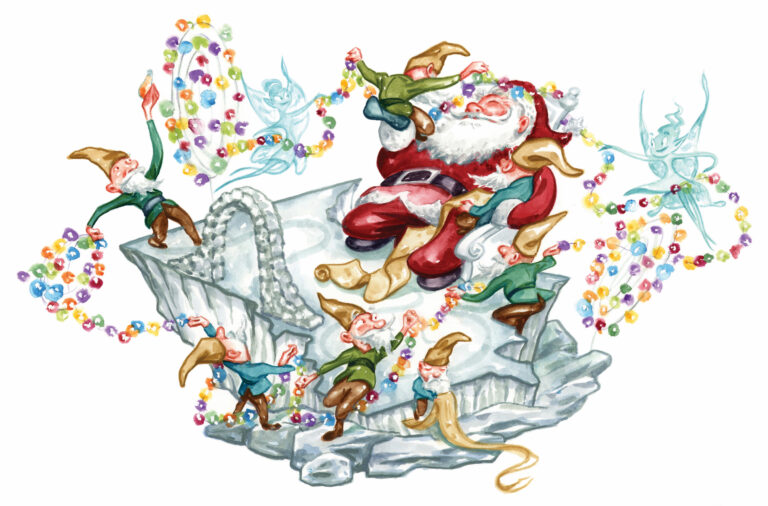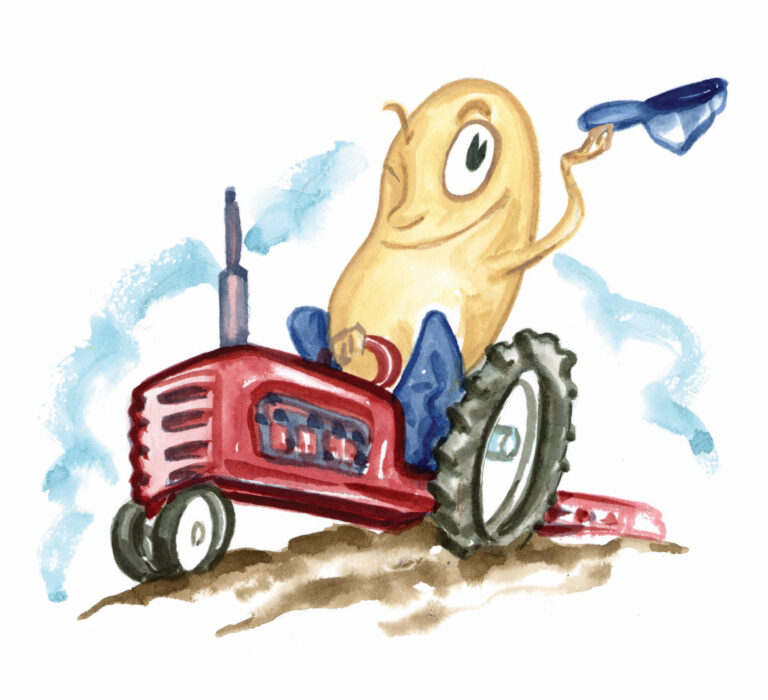By Larry Bleiberg, Gabriela Gomez-Misserian, Jordan P. Hickey, Rachael Maddux, T. Edward Nickens, Lia Picard, and Trudy Saunders
Civil Rights Revival
Four days after Rosa Parks’s arrest in Montgomery, a young Martin Luther King Jr. stepped in front of more than five thousand people and delivered a speech that changed the trajectory of history. His comments on December 5, 1955, launched the Montgomery bus boycott and what would become the modern civil rights movement. After decades of neglect, the site of the mass meeting, Holt Street Baptist Church, recently reopened as a museum and joined the United States Civil Rights Trail. The congregation, which remains active in the community at a different location, raised $1.5 million to restore the crumbling building, says the Reverend Willie D. McClung, pastor emeritus and a friend of King and his family’s. Museum visitors can now see the desk where King quickly scribbled his remarks before his speech, and then sit in pews and listen to a recording of him delivering the rousing address. It’s an emotional experience for visitors, McClung says. “They get very quiet. There are a lot of tears shed.”

Punch Bowl
“Verily, hard times and temperance are not friendly to egg-nogg,” read an 1842 article in the Arkansas Gazette. Thankfully, tempestuous economic winds never completely extinguished the South’s love of the holiday punch, and the Historic Arkansas Museum in Little Rock will this year throw its Twentieth-Ever Nog-Off on December 13. What its founders originally conceived of as a fun and tasty pun-spiked competition-slash-celebration of family eggnogs has since become a wildly popular event featuring recipes that are, as the “nontraditional” category suggests, not your great-great-great-grandfather’s nog. “We started with the ancient eggnogs, but we are giving a chance for all these creative people to build on the tradition,” says the museum’s former education director, Starr Mitchell. Entries have of course included rum and bourbon, but also such surprises as chai spices and local honey.
Big for its Britches
Lake Wales rests peacefully amid palmettos, live oaks, and citrus groves, despite its proximity to nearby metros Tampa and Orlando. While they were growing up, Rusty Ingley and Reid Hardman, the founders and cochairs of the Orange Blossom Revue (December 6–7), dreamed of something more. “All I’ve ever wanted was a traffic jam,” Hardman once quipped. Goal achieved: Now in its tenth year, the revue, formerly a community barbecue fundraiser, has transmogrified into a two-day musical extravaganza that far outkicks its coverage, with headliners like this year’s Robert Earl Keen, the War and Treaty, and JJ Grey & Mofro. One year, Langhorne Slim’s set even competed with the high school football game’s very vocal crowd, some two hundred feet from the stage. “We could be somewhere else and do the fifty-thousand-person show,” Ingley says, “but it would lose the intimacy that I think keeps people coming back year after year.”

There’s Gnome Place Like Rock City’s Holiday Celebration
Even on a clear day, it’s tricky to “See Seven States” (as a marker encourages) from Rock City Gardens atop Lookout Mountain, Georgia. But after dark, from November 15 through January 4, it’s nigh impossible to miss the millions of glowing bulbs that make up the park’s Enchanted Garden of Lights, which marks thirty years this season.
“There are now grandchildren here with their grandparents, who came when they were children,” says Will Jackson, Rock City’s senior manager of innovation. “We take that seriously.”
Jackson and his team work year-round to perfect the immersive displays that transform the park’s fourteen acres of winding paths, craggy passageways, lush native landscaping, famous gnomes, and fairy-tale dioramas into a holiday spectacle.
For the first time, the public also will be welcomed into Carter Cliffs, the stone-brick house built in 1936 by Rock City founders Garnet and Frieda Carter, home to three subsequent generations of the park’s family ownership, and now an ideal venue for fireside chats with Santa.
At a time when it’s easier than ever for aspiring Clark Griswolds to Amazon-order their way to holiday glory, Jackson knows his team offers something special. “All these lights—we can put them out in a parking lot and have a show,” he says. “But the only place you can have an Enchanted Garden of Lights is in this space. There’s no other Rock City.”
Mixed-Media Magic
With found enamel, scraps of banknotes, and worn fabrics, Kathia St. Hilaire paints, prints, collages, and weaves together textured tapestries with images to explore her Afro-Caribbean heritage and Haitian history. Through February 9, Louisville’s Speed Art Museum will showcase fifteen of the artist’s mixed-media pieces. Lead curator Tyler Blackwell was first drawn to the fresco-like quality of the artist’s work. He also recognized a connection among her layered designs, his state’s abounding quilt-making legacy, and the patchwork of textiles in the museum’s own collection. “This Kentucky history is one of the reasons why I wanted to bring her art to Louisville,” Blackwell says. “St. Hilaire’s works, like quilts, carry history, stories, and aesthetic experimentation.” For example, in David, named for the 1979 hurricane that struck Haiti, the artist collected shreds of rubber tires, banana leaves, and found papers and twisted them into a bright spiral that shifts in the light.

Pluck and Money
It’s not New Year’s Day in the South without a heaping bowl of hoppin’ John, a dish of rice and black-eyed peas believed to bring luck. And the century-old bean company Camellia, based just outside New Orleans, relies on the Southern region’s farmers to produce enough peas to meet its holiday demand. “We are continuing to grow our network of trusted farmers,” says Vince Hayward, Camellia’s CEO. One of them, Carl Smith III of Pleasanton, Texas, has navigated drought and a spring hailstorm to protect this year’s crop. Despite the hurdles, Smith is hopeful about preserving Southern legumes for future generations. “It’s all I’ve been doing for forty years, and my dad forty-two before me,” he says. “My daughter has come into the business, and hopefully it will continue for another forty.”
A Shore Bet
When Werten Bellamy first arrived at Great Oak Manor in the middle of the night, he had his doubts about the fading guesthouse’s prospects. “Honey, nobody’s going to come here,” he told his wife, Kellye Walker. Then he awoke the next morning in a room facing the sparkling Chesapeake Bay and had a change of heart. The property sits just outside Chestertown, part of a 1659 land grant that covered some two thousand acres. The handsome neoclassical brick manor home arose in 1938 and later became a sportsman’s retreat for the businessman Frank Russell, who hosted such luminaries as Ernest Hemingway, Arthur Godfrey, and John F. Kennedy. Russell offered hunting, fishing, horseback riding, an illegal casino, and the seclusion that his famous guests sought. Since purchasing the spread in 2022, Bellamy and Walker have renovated the common areas and guest rooms and are planning to start construction on a demonstration kitchen. A notable addition: Area artisan Vicco von Voss crafted a bar from an on-site black walnut tree. It’ll be the perfect gathering spot come January 10–12, when the property hosts From Napa to Italy: A Wine and Food Experience with the acclaimed sommelier Haley Moore, the first event of 2025’s Taste of Great Oak Manor monthly culinary series.
Gracious Aplenty
As any host knows, the table sets the mood for the meal. Vicksburg will find itself at the center of a rising movement celebrating just that when it hosts the Beautiful Table Settings Bash (January 30–February 1). The event grew out of a Facebook group that, early in the pandemic, swelled to a quarter million members. Stuck at home, followers would set tables for imaginary parties and share pictures. Manners matter, says founder May Eason of Wetumpka, Alabama: “You don’t want to be ugly and say your tablecloth doesn’t match. If you can’t say something nice, keep scrolling.” Vicksburg residents Harley Caldwell and Jennifer Coulter invited Eason to put on a multiday table setting exhibition, now in its second year. After attending talks on napkin folding and floral arranging, guests can stop by the salad-plate swap table and browse silver flatware, crystal, and embroidered linens galore.

Happy Little Trees
Bob Ross, the warmhearted, fuzzy-haired PBS television artist who died in 1995, is still a crowd-pleaser. No wonder North Carolina Wesleyan University is mounting a second exhibition of the Florida native’s work, Bob Ross: Bringing Back the Joy. Running from December 2 to January 13 in Rocky Mount, it features seventy-six canvases, some from his program, The Joy of Painting. Last year, seventy-six other Ross oil paintings, then the largest number of his works ever exhibited, attracted eleven thousand visitors from as far away as Australia. “People told us he changed their lives,” says Sheila Martin, executive director of the university’s Dunn Center. “The stories were just unbelievable, how they loved this man.” This time, the center will also stream Ross’s shows, host painting classes, and stage a Bob Ross musical. The landscapes and seascapes—the artist’s specialties—are on loan without cost from Bob Ross Inc. Joan Kowalski, whose parents started the business with Ross, says he was as kind and goofy as he appeared during the show’s thirty-one complete seasons (he died just before production of the thirty-second). “He knew that he was sort of a country boy, and he was in on the joke, too.”
Casserole Royalty
During the holiday season, more than thirty thousand quarts of food travel from Wade’s Restaurant in Spartanburg to families’ tables, and that’s in addition to the eatery’s regular dine-in and to-go service. Since the meat-and-three mainstay opened seventy-seven years ago, its gravy-laden turkey, cornbread dressing, marshmallow-topped sweet potato soufflé, and the fan-favorite yeast rolls have been fixtures at customers’ Thanksgivings and Christmases, especially for those who have sneakily claimed the famous casseroles as their own. Despite the consistent love from loyalists across the region, Wade Lindsey III and Anna Lindsey Liles, the brother-and-sister duo at the helm, were shocked when they received an email from the James Beard Foundation naming their family restaurant a 2024 America’s Classics honoree. “We didn’t even believe it and deleted the initial email,” Wade says. “It wasn’t until they kept trying to contact us that we finally realized it was real.” They accepted the award in Chicago alongside their lead cooks, Sonya Hunter and Ray Pearson, who have worked in the Wade’s kitchen for nearly three decades. “We hear that we are the first stop home after a student is away at college, or the comforting meal requested during a stay at the hospital, or a Sunday lunch tradition for the entire family,” Anna says. “We know we are still doing something right.”
Garden and Goods
Every year since 1991, antique dealer David Lindquist has packed a truck to haul hundreds of items from his shop, Whitehall Antiques, in Chapel Hill, North Carolina, to the Antiques and Garden Show of Nashville (January 31–February 2). The huge gathering combines botanical fantasy and classic design, he says. “It’s my absolute favorite show of all time.” This year’s highlights include a keynote lecture by actress and author Brooke Shields, along with her longtime collaborator, the British decorator David Flint Wood. Interior designer April Tomlin will also appear with two of her celebrity clients: musician Sheryl Crow and Lauren Akins, the wife of country star Thomas Rhett. The charity event has grown to include more than 150 dealers and 16,000 annual attendees. Designer Elizabeth Lawrence, who serves as honorary cohost with her business partner, Bunny Williams, says she always takes time to wander the show and drink it all in: “It’s an eclectic mix. There are great garden things. There’s beautiful furniture. There’s modern art. There’s always something gorgeous.”
Meteoric Rise
Houston’s soon-to-open Hotel Saint Augustine is rooted in dualities—old meets new, contemporary meets classical, a mirror of both the city and the surrounding Montrose neighborhood. In some respects, Perseid, the Bunkhouse Hotels group’s onsite bistro helmed by the lauded chef Aaron Bludorn, is no different, although its roots are arguably far more tangled. After Bludorn moved to Houston in 2019 following stints in California and New York, he found a Gulf Coast culinary scene drawing inspiration from far-flung influences including West African, Creole, and Vietnamese. That same sensibility now infuses Perseid, Bludorn’s fourth restaurant in Space City, where duck frites, dressed with mango and sauce au poivre, might appear alongside fried squash blossoms stuffed with jambalaya. Still, Bludorn notes, while Perseid and Hotel Saint Augustine are very much products of Houston, they have universal appeal. “At the end of the day,” Bludorn says, “we’re all people just hanging out together, enjoying good food, enjoying the fruits of the season.”
Fly-Tying One On
At the Virginia Fly Fishing and Wine Festival (January 10–11), learning how to roll cast or tie a blood knot is about as intimidating as a glass of buttery chardonnay. “It doesn’t matter if you don’t know a fly rod from a buggy whip, or if you’ve been fly fishing for twenty years and want to go to the Amazon,” says festival organizer and fly-fishing author Beau Beasley. “We have instructors for every level of experience.” And vendors that range from Alaskan lodges to sporting artists to guides for local Virginia waters. Held indoors at the Meadow Event Park in Doswell, just north of Richmond, the festival happens rain or shine. A ticket gets you access to every vendor; tastings from nine wineries, three distilleries, and a brewery; and a spot in more fly-casting, fly-tying, and fly-fishing classes than you could possibly attend.
Cheers to a Legend
When Parkersburg’s North End Tavern opened in 1899, it served shift workers and tradesmen, and quickly built a reputation as a rough-and-tumble watering hole. But West Virginia’s oldest bar (as far as they can tell—give them a holler if your establishment is older) and restaurant evolved over the decades. Now celebrating its 125th anniversary, the NET, as it’s called, operates as a brewery, distillery, and family restaurant known for German pub food and burgers made from local beef. “You can say it’s an institution,” says Tom Joyce, the city’s mayor, who has been dining there since childhood. Tavern owner Joe Roedersheimer purchased the bar in 1978 and expanded almost twenty years later, opening one of the state’s first craft breweries in 1997. “I figured I’ve already got a beer joint, I might as well add a brewery,” he remembers. The Roedy’s Red, an American amber ale named after him, remains its bestseller. Roedersheimer sees no reason the bar won’t be around another 125 years: “Our beer’s always good and cold. We make one heck of a good Reuben. We keep it simple, but we keep it consistent.”


